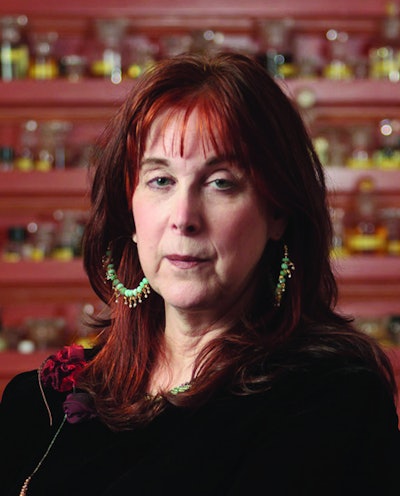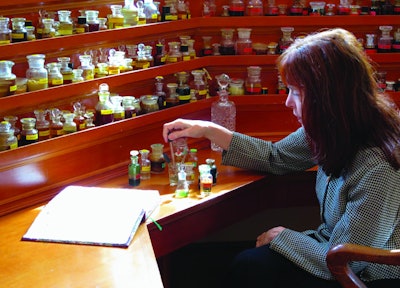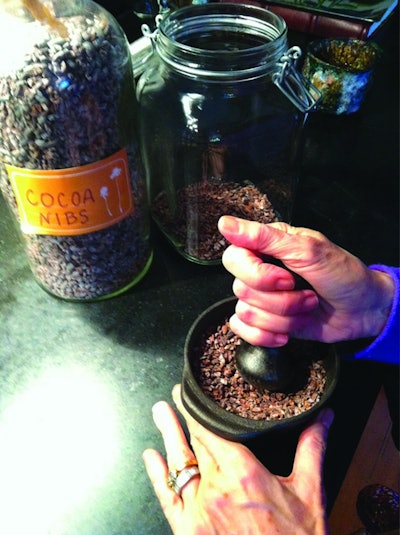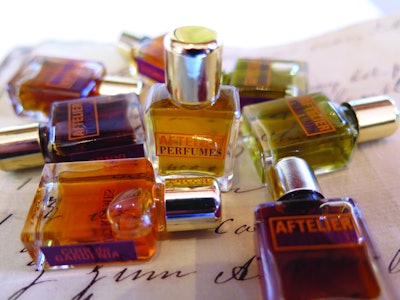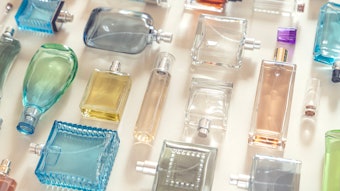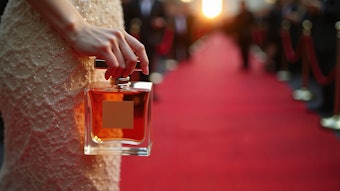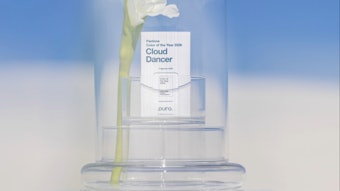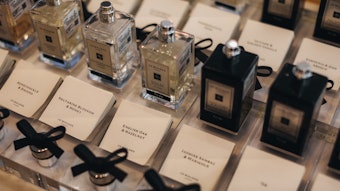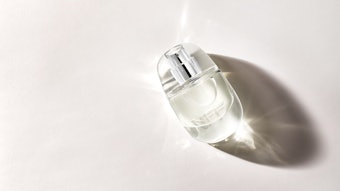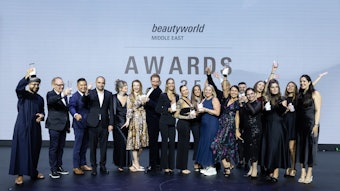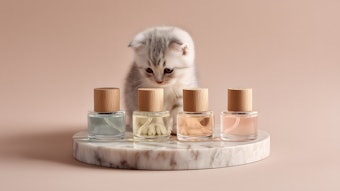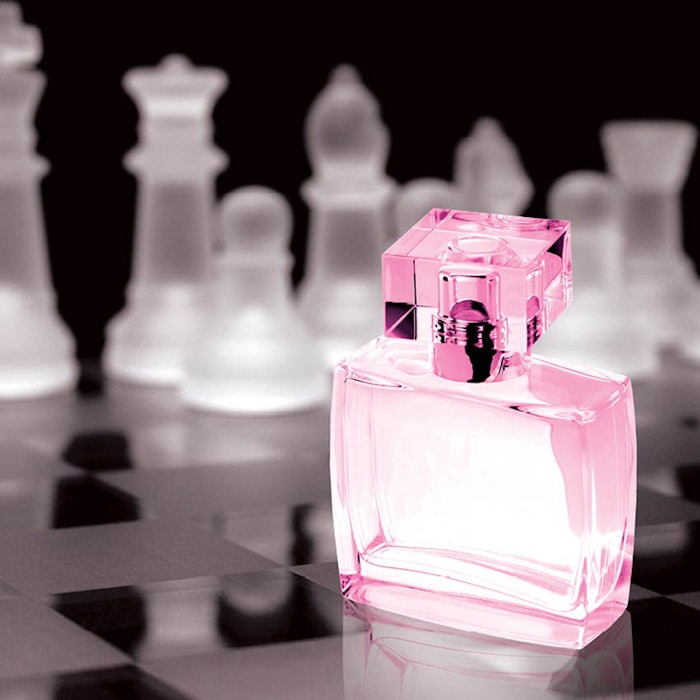
In April 2016, Vogue named Mandy Aftel’s Fig as one of the 10 natural perfumes that are changing the gamea. The game is the perfume scene – and despite the hand-wringing of many commentators about the avalanche of new perfume launches, we are in a new golden age of perfume where the ability of people to connect and organize themselves over a mutual interest on the internet has enabled the rise of the artisanal perfumer—as well as levelled the playing field for mass market and niche brands.
Mandy Aftel is a strong believer in the power of the internet in changing the fragrance game for herself and for her audience: “I don’t think anything has been as important to fragrance culture as the internet, in a way. First of all, I couldn’t have a business without being in stores, so I am very grateful. I feel like I’ve met these really nice people and like there is a whole international community of people who are connected and passionate about smell.”
Some of the key recent findings in a market research report by Global Industry Analysts Incb include the rising importance of aromatherapy in driving the demand for organic and natural products, as well as the growing popularity of bespoke perfumery.
It would be fair to say that Aftel hasn’t just been there to meet this growing demand but has been instrumental in creating it. When you mention her name, fans sometimes seem to search for the sign of the cross of natural perfumery, for Mandy is its goddess.
In Search of the Authentic Self
“I grew up in a very conventional home in the Midwest, in Detroit and I didn’t fit in,” explains Mandy. “My parents had me when they were 43, and I’m now 68. They had very interesting lives before—my father was a musician who ran away and joined a band. He had a big band throughout the 1930s. My mother had a career—which was unusual in those days; she was an accountant. Through The Depression, they had these independent and creative lives. When I came along, they started to live a much more conventional life. I feel like I was always my own person; interested in beauty, writing, music and the creative life. I was a bohemian before I was a hippie – and I really was a hippie.”
Mandy earned a master’s degree in counseling from University of Michigan and changed scenery.
“When I came to California in my early 20s, I just loved it. It was a different time – more bohemian and unconventional – and I followed my own path to where I am now.”
Aftel established a successful psychotherapy practice in California, focusing on treating creative people – and this part of her life lasted for 30 years. By her own description, she fell into writing a book about a rock star (Death of a Rolling Stone: The Brian Jones Story) and after also writing a book about what she had learned as a therapist (The Story of Your Life: Becoming the Author of Your Experience), she decided to write a novel next. For reasons she can’t explain, Mandy decided that the protagonist should be a perfumer – possibly because of the opportunity to do more research; something that Mandy finds irresistibly alluring – and off she went to find out everything she could about perfume.
“This was before the internet, so I started to collect old books by going to book fairs and asking if anybody had a book on perfume. I was just besotted with the books - I thought they were so beautiful and interesting and I loved them.” Mandy ended up amassing a collection of over 200 perfume books, as well as antique catalogues and objects.
Mandy sees herself as an artist and an artisan – and these core values have shaped her attitude to aroma, and to business.
A friend of hers suggested the pair should attend a two-day perfume making class to help with Mandy’s research, and the experience changed Mandy’s life. Instead of finding ways to add nuance to her novel’s heroine, she became so entranced by the aromas presented to her - and convinced that she had a knack for blending them - that she didn’t hesitate when her friend suggested they should start a natural perfume brand. So they did just that. Grandiflorum Perfumes launched in 1995 and was sold in Neiman Marcus and Bergdorf Goodman, but the happiness didn’t last.
Instinctive Business Model
“I made all the perfumes and we got a lot of attention, but the business came to a bad end and I lost it to her; I was pushed out—and was very sad about it all,” reminisces Mandy. “I thought that maybe I’ll never make anything now, but then of course I had lots of books and oils—and some people knew of me. At that point, the same editor I had worked with before said, ‘Why don’t you write a book about perfume now you know so much about it?’ That’s how Essence and Alchemy came about.”
Bit by bit, Mandy started creating custom perfumes for people, one thing led to another, and before she knew it, she had a flourishing artisanal business. She got into food and teaching around this time, too: “I live in a very foodie area here in Berkeley – in fact I live beside a very famous restaurant, Chez Panisse and I know a lot of people in the food world. So I realized that I really wanted to focus on ingredients in the same way people do with food.”
Mandy sees herself as an artist and an artisan – and these core values have shaped her attitude to aroma, and to business.
She ended up writing a cookbook with two Michelin star chef Daniel Patterson (Aroma: The Magic of Essential Oils in Cooking and Fragrance) and in the process of exploring the use of essential oils in cooking, she added a range of Chef’s Essencesc to her line-up.
“I think of fragrance as disembodied flavor,” says Mandy. She moves fluidly between the two worlds and supplies flavors for artisanal and small ice cream makers, candy makers, restaurants, bars and more. She has helped create scented dinners Patterson’s Coi restaurant in San Francisco and in many other restaurants, as well at the American Museum of Natural History.
Mandy, her husband Foster Curry and her stepson now all work from the studio in Berkeley and do everything themselves. The business model is highly unusual: “We are open for a total of three days a year. That’s it. There is a great holiday extravaganza where we turn the studio into a store and offer people food, drink and music – people come from out of state and even from all over the world for it – but that’s it, everything else is online. We aren’t in any stores and that’s how I like it.”
The Essence of Aromas
Mandy is in love with books; with research; with collecting; with learning – the way she talks about her interests would wake up someone from a coma - her enthusiasm is so palpable. But Mandy loves nothing more than the raw materials she works with. She has chosen to go for natural only (a definition which for her includes naturally derived isolates) and explains her approach as a purely aesthetic preference: “I just don’t like the way synthetics smell. That’s it.”
After spending some time in her company you believe that if aromatic materials had souls, Mandy would see into them.
However, in extolling the virtue of naturals, she does have a tendency to put down synthetics and mass-market fragrances – and while this is understandable when it comes from a position of deep personal preference, it can be upsetting to people, who genuinely like all kinds of smells, embrace the entirety of the perfume world – mainstream, niche and artisan – and judge each perfume on its own merits, rather than based on what ingredients have been used and who created it.
For example, in Fragrant: The Secret Life of Scent, Mandy writes, “If we accept the received aesthetics of the mass-produced perfume industry, we will live forever in a universe of “fruity florals,” “floral florals,” and other “florals” not found in nature that nevertheless last, immutable, on the skin. On the other hand, our suggestibility means that exposure to authentic fragrances can have an almost instantly transformative effect on sensibility, conveying a richer, almost 3-D experience.”
And, indeed, when you examine Mandy’s position further – you discover that it’s much more about corporate versus artisan rather than natural versus synthetic.
However, one can understand where her interest lies and how her passion to awaken people from a sensory slumber to the virtues of experiencing the aromas all around them; in food, in nature and in perfumes can lead to drawing comparisons. When you look at the way in which the perfume budget tends to be squeezed in many mass-market products in favor of marketing, packaging, retail margins and more – it’s not surprising that such comparisons can come out as unfavorable towards the mainstream aesthetic.
Still, in recent decades, there has been a great surge in popularity and availability of brands which straddle both worlds – that of the ingredient-focused, perfume-focused brands, and that of the marketing-driven fragrances. Long-established niche houses like L’Artisan Parfumeur and newer entries to the market, led by passionate independent perfumers and brand owners have seen fragrance launches where the juice has been given a much more generous budget than what we would expect from a typical department store flanker or a celebrity scent. And, indeed, when you examine Mandy’s position further – you discover that it’s much more about corporate versus artisan rather than natural versus synthetic.
Mandy doesn’t assign virtue and value to a perfume just because it’s natural: “I don’t have a drum to beat about it; I just chose my palette based on what I love. And because I work with natural isolates, too, I feel like my palette is so huge that I’ll never get bored or tired of what I use. Working with naturals and really high quality isolates is really where perfume started – where it was for a long time.”
“I think there are very vigilant natural perfumers and I don’t feel connected to them either. I don’t feel like just putting a bunch of essential oils together, [that] just because it’s natural, makes it good,” explains Mandy.
“I admire Liz Moores; I admire Andy Tauer, and also – both of them will say that Essence and Alchemy was central to them – they started with naturals and then they went on to work with synthetics.”
The Aftel Archive of Curious Scents
“Notwithstanding the inroads that scientific knowledge has made, scent remains one of the most accessible yet irreducible experiences of magic that we have.” - Fragrant: The Secret Life of Scent.
Mandy wants people to have the kind of aromatic awakening she experienced on that course she attended, all those years ago. She now teaches perfumery at her studio, and is soon to open a small perfume museum at the back of her property – the Aftel Archive of Curious Scents. It will be open to six people at a time, with prior booking, and visitors will be able to smell through a version of her perfume organ, explore her vast collection of antique curios and learn more about the history of perfume.
The artisanal business model allows Mandy to use obscure and rare materials; even some she makes herself. For her gourmand fragrance Cacao, she creates the chocolate alcohol by tincturing ground cocoa beans and vanilla pods. For her Cuir de Gardenia fragrance, she tells me of a Canadian perfumery student whose neighbor had to cull some beavers and was clever enough to hold on to the castoreum in his freezer – that is until Mandy got her hands on it and put it in her perfume.
Mandy is obsessed with natural ambergris and uses it in her fragrances. She sources materials from Robertet, Mane, Berjè, Global Essence, Frutarom, Alfrebro, Penta, Ventos, Albert Vielle, Sirius, and Biolandes – but also from tiny specialist growers and producers; always crossing her fingers that the supply won’t dry up. But if it does, she’ll just create something else.
This means her fragrances are impossible to copy and were she to grow; she’d have to change how she makes them.
The prices for Mandy’s scents are above typical niche prices – for example, Cuir de Gardenia costs $205 for an 8ml pure perfume or 30ml eau de parfum spray and $270 for an 8ml solid in a sterling silver case. The creation of a custom perfume costs $2,000 and includes three versions of the finished product.
“My custom perfume process is like a portrait of a person and where they are at that moment in time. I ask them no questions at all; I don’t want to know anything about them, so I’m never going to have a questionnaire and have it filled out easily. I just have them come [and] get them to smell things.” Mandy observes how people react to the scents and as part of the process, they end up telling her about their memories and associations, which fills in the blanks of their life story.
Artisanal Luxury
Aftel has established a genuinely artisanal luxury brand. Its products aren’t uniform in appeal - and they aren’t meant to be.
“I encourage people to order samples before making a purchase,” says Mandy, “and actually I am forever discouraging people from shopping,” she chuckles. Her model is based on making sure people find the right fragrance – and sometimes that isn’t from Mandy.
“Once, this man came; he had bought a custom perfume as a present for his wife. So I got all the stuff out – all the crowd pleasers – you’d have to be dead not to like some of this stuff. His wife didn’t like anything. Orange! Stuff that everybody sort of likes.”
Mandy was on the verge of giving him a refund, but something made her dig out the samples of synthetic floral accords she keeps for comparison: “I showed her synthetic rose and synthetic jasmine. She loved them! And so I thought, oh, this isn’t going to work. When her husband came to pick her up I said, you know, I really need to give you your money back because I don’t think I am the right person to make a perfume for your wife. He asked if he could smell a couple of things and ended up liking them so much he stayed and had the custom perfume made for himself instead. I thought it was really, really cute.”
Mandy has very deliberately chosen to follow the beat of her own drum. In doing so, she has created a brand to which her customers respond to. She creates strong bonds with her clientele and experiences a lot of repeat business.
“We do not only have customers, we have an enormous amount of repeat customers. Anyone can have a customer. It’s not hard. It’s repeat customers that make a business. It’s repeat customers that tell their friends. And that’s what makes a business grow. And I feel so lucky that people find their way to me.”

